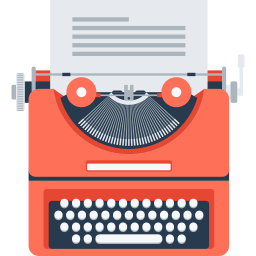How to Become a Great Writer: 15 Practical Tips
How to Become a Great Writer: 15 Practical Tips
Ever harbored a dream of becoming the next Grisham, Hemingway, or Vonnegut? You need to improve your writing skills to become a top-notch writer or submit great essays for your business school. While the same is true for your web content, honing your writing skills comes at a price. Has someone ever told you how to become a great writer? If they told you it was that simple, they lied to you. You require putting in a great effort, which pays, after all. And, if it appears to be an enormous endeavor, there are some real steps you can take right now to get started. Some of us have been writing essays, articles, press releases, and book reviews for 25 years for various outlets, but we’re constantly striving to improve. While the likes of Shakespeare, Twain, Grisham, Hemingway, and Vonnegut enhanced over time, this does not mean their writeups were flawless. Though I’ve improved significantly as a writer over the last 25 years, the road has not been smooth. I’ve had a fair share of hard lessons I would like young and aspiring writers to glimpse.
Whatever level of writer you are, following these 15 practical Tips for how to become a great writer will help you perfect the art.
Tips for How to become a Great Writer
1. Read writeups by great writers
While reading from great authors may seem apparent, it would be an understatement not to stress that it is the shortest route to becoming a great writer. This is where you need to begin as a writer as you hone your skills to become a great writer. You won’t know how to navigate the murky waters of writing if you don’t read outstanding literature by great writers. We all started by studying from the masters, mimicking their approaches, and that’s how you find your voice. Read widely and everything to the greatest extent, and here in lays the secret of effective writing. As you skim through and read the content, you’re better off paying great attention to style and procedure.
2. Write frequently.
Great writers commit to writing daily. That said, have a schedule that would remind you to write as often as possible. Your writing won’t improve unless you are devoted to writing repeatedly. You can only perfect the more your write. Writing is an art that takes practice to improve. If you can’t write for a blog or other outlets, you can register for yourself and enjoy it as you do it. Writing for the sake of writing and putting in your all gets easier over time. Thus, frequent or continuous writing is the last straw that breaks the camel’s back. This is, equally, the best way how to become a great writer.
3. Write Emerging Snippets
Make it a habit to write down emerging ideas or snippets as you read materials by great writers. Take notes of conversations; write plot twists and visual aspects and passages from songs or poems that are thrilling to you. Writing down these ideas helps to inspire your approach to putting ideas together and crafting a brilliant piece of work. As a voracious reader, I tend to write a list of inspirational ideas while reading them closely, over and over. This works magic because I often master approaching different topics from different angles when presenting my articles.
4. Create a Writing Schedule
Make a habit of writing at a specific time of day when you are not interrupted. While mornings work best for me, others may like lunch, evenings, or late hours. Whatever works for you, make it an everyday habit to write for at least 30 minutes. I’m required to write for several hours for full-time writers like myself. As you hone your skills along the way, you’ll get to write for many hours like a pro.
5. Keep Writing.
You’ll never know how to become a great writer unless you keep writing. A blank sheet of paper can be scary to a new writer. I know it, I feel it, I’ve been there too, and it’s tempting to fiddle with your phone or get yourself a bite. Just start writing, and that’s the secret. Once you get your fingers on the keypad, don’t bother yourself about anything; keep going. As you continue typing, ideas will start flowing. I start by trying to create the bigger picture of what I want to write, then ideas begin to flow, and content spills out of me. Once I had crafted the draft version of what I intended, I read over and over, tweaking here, chopping off a few lines there, and trying to rearrange everything until I settled for a refined flawless piece article. Ultimately, the important thing is to get started.
6. Eliminate Disruptions
Though multitasking and background noise make writing difficult for some people, I write best with loud or soft music. Music brings to the fore my writing genius. I’m also creative in writing in silence. If you’re this person that gets distracted a lot, eliminating disruptions is not an option. If switching your TV, Phone, or PlayStation can create the right environment that fosters creativity, so be it. Do not divert your concentration by engaging in diversionary activity when it’s your time to write. Eliminating all manner of distractions will not only ensure you progress smoothly without interference but will also help to sermon your creativity.
7. Plan Before You Write
While I’ve stressed the need to write as mentioned above, planning before you write a lot of sense. Before you get down to writing, plan and try to gather your thoughts together, then brainstorm as you craft an outline. Once you’ve written an outline, you can sit behind your computer screen and begin typing. There’s a strait jacket to writing a compelling writeup, except as ideas come, the blizzard way.
8. Research and Test
Emulating great writers does not necessarily mean you have to become a copycat. You can try out new stuff. Test your methodology, voice, workings, and topics as you borrow information from other writers. Again, put your creativity to work by making up new words and testing new terminologies. Testing everything enables you to discard what doesn’t work and embrace what works.
9. Review Your Writing
A good writer goes over the text and explores it closely to ensure a flow. You’re not an exception in this. If you think effective writing takes a lot of work, you have a long way to make it to the list of top writers. To be a successful writer, you must be willing to review your work. Go over your work and look for grammatical and spelling mistakes.
Moreover, going over your work enables you to eliminate redundant passages, vague statements, and wordiness. Even great writers revise their drafts as they polish them to some fine end product. Ever wondered what separates good writers from great writers? The ability to review a piece of writing to eliminate syntax errors and inconsistency to get a polished and flawless paper. Since quality is better than quantity, you should always aim for simplicity, authority, and vigor.
10. Be Brief
When writing a draft, ideas tend to fall off like a torrent. Nonetheless, you cut and eliminate unnecessary words and shape the paper into a work of art during editing. Reviewing the main draft allows you to edit the writing line by line and delete anything except the essentials. Writing prose in short sentences sounds more appealing to writers than lengthy sentences that distort meaning. The compact should be the mantra of all your writing.
11. Use strong sentences
I’ve learned over the years that using strong sentences creates a strong impression on readers. And this is a trick that great writers use to get the audience glued and forever curious to flip over to the next page. The trick lies in shorter sentences with powerful verbs are preferable. As long as you differentiate your writeup from poetry, you can always embrace variety and aim to write lines that stand out. Chopping off unwanted phrases and fluffy sentences becomes easy during revision, an issue you can’t when writing or coming up with the main draft.
12. Collect feedback
Good writers don’t write from outer space; they’re real humans with flaws. Thus, on your path towards becoming a huge success in writing, don’t create walls around yourself. Learn to engage with other professionals to read through your work and provide feedback. When starting as a writer, I used to read through my work to a professional writer/editor. Professionals are everywhere, but just in case you don’t have the luxury of getting one, get any voracious reader and brilliant writer to read through your paper, get honest and insightful comments, and build on those comments. Writing is not for the faint-hearted; hence you should take any critique positively and use it to enhance your writing skill. You should be like the proverbial scripture: Rebuke, a wise man, and they’ll love you. But advise a fool, and they’ll loathe you with impunity. Take your editor’s feedback as a learning process and improve your writeup instead of being upset
13. Make Yourself Known
Once you start spreading your wings as a writer, allow the public to read your writing at some point. Again, as a great writer, you’ll be required to publish your writing as a book, article, magazine, or blog. Publishing your writeup through these avenues is the most efficient way to disseminate your storyline and get the public to know what you are made of. Utilizing a blog is the best way to put yourself out there as a writer. You can also use article submission platforms. Whereas upcoming writers fret at going public, you can’t actualize your ambition as a writer unless you’re willing to publish your content.
14. Use a Conversational Tone
While most writers like formal writing, great writers approach it informally. Most readers relate to the conversational tone type of writing. It will not be easy at first, but it is something to aim for. And this brings us to a critical premise that informs American English; it veers away from the British type of English by breaking grammar rules for the sake of a conversation.
15. Start Strong and End Strong.
A good writer knows how to start and end the writeup. The beginning and end of your writing are the most significant aspects. You need a strong hookup line as you begin your writeup, just as you need a substantive conclusion. Becoming a great writer starts with knowing how to hook the reader immediately; this enables one to skim through or read the entire piece of writing. Ask any great writer, and they’ll tell you how they spend some extra time constructing an excellent hook at the beginning after they’re finished with the final draft. Strong opening remarks will make the reader curious and whet their appetite and desire to learn more. The same applies to writing a good ending, leaving readers craving more thought-provoking writeups from your end.










